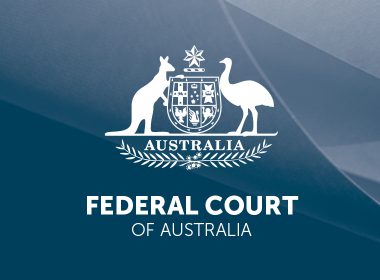Key decisions
- AMF15 v Minister for Immigration and Border Protection [2016] FCAFC 68
- Australian Competition and Consumer Commission v A.C.N. 099 814 749 Pty Ltd [2016] FCA 403
- Bragdon v Directory of the Fair Work Building Industry Inspectorate [2016] FCAFC 64
Administrative law – Migration law
Jurisdictional error – denial of procedural fairness – Court’s duty to unrepresented litigants
In AMF15 v Minister for Immigration and Border Protection [2016] FCAFC 68 (20 May 2016) the Full Court set aside the orders of the Federal Circuit Court of Australia (FCCA) which summarily dismissed an application for judicial review of a decision of the then Refugee Review Tribunal on a show cause hearing on the first court date in the FCCA. The Full Court (Flick, Griffiths and Perry JJ) did so on the ground that the applicant was denied procedural fairness.
The applicant was unrepresented before the FCCA. According to the Full Court, the fact that the applicant was unrepresented was a factor which may be taken into account, along with others, in determining whether there has been a denial of procedural fairness. However, the Full Court doubted that this factor alone would ever warrant a finding of procedural unfairness in a hearing of the present kind (at [52]).
The Full Court considered and discussed the authorities relevant to:
- the duty of judges to ensure a fair trial in cases where a litigant is unrepresented, including in judicial review cases by asylum seekers (at [37]-[42]); and
- the constraints imposed by procedural fairness upon the power to summarily dismiss a matter at the first court date (at [43]-[44]).
In the circumstances, the Full Court held that the applicant was denied procedural fairness by the FCCA (at [47]). The approach of the Full Court emphasised that the relevant principles require close attention to be given not only to the legislative framework within which the issue arises, but also to the individual circumstances of the particular case. ‘As such, determining whether there has been a breach of procedural fairness is unlikely in any case to be resolved satisfactorily by an approach which seeks simply to contrast the particular circumstances of one case with another.’ (at [1]; see also at [46]).
The Full Court noted that it did not accept the applicant’s contentions that he had a right to publicly funded legal representation as an aspect of the requirements of procedural fairness or, alternatively, was entitled to have the proceeding stayed (at [51]).


